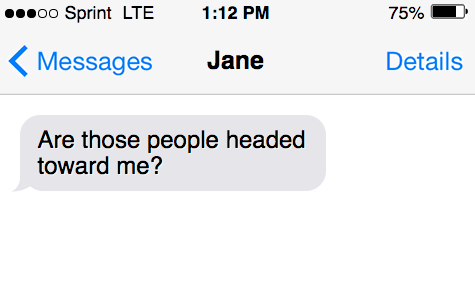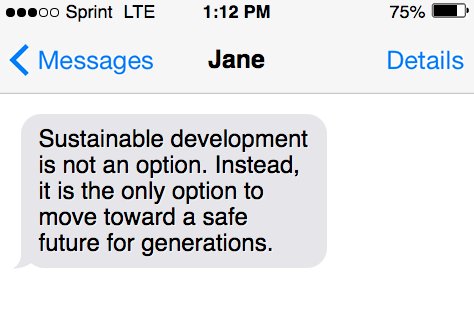Is it toward or towards? The High School English Grammar & Composition book by Wren and Martin defines preposition as a word placed before a noun or a pronoun to show in what relation the person or thing denoted by it stands in regard to something else. The preposition governs the noun, noun phrase, or pronoun.
There are four types of prepositions used to indicate the relation of a noun, noun phrase, or pronoun with another word in a sentence.
Both toward and towards are prepositions falling under the category of the preposition of direction. Let’s try and understand what these prepositions mean and in which type of situations these are used (with some relevant examples). And what is the difference between the two, if any?

What does “toward” mean?
Toward is a preposition that refers to the direction, not the final destination of the noun, noun case, or pronoun. In other words, it is used to represent relation when someone or something is:
- Closer to someone or something
- In relation to someone or something
- Near to, just before, or around a time or place
It is also used to show:
- The development of a process that will lead to a particular outcome
- How someone feels about someone or something
- When someone is not far from a particular place or location

What does “towards” mean?
Just like toward, towards is also a preposition that is used to indicate relations.
Towards is used in the following ways:
- Go/move/head towards
- Face towards
- Make towards
- Work towards
- Lean towards
- Count towards
- Put towards
When we say toward and towards are one and the same thing, do we mean that there’s no point of difference between the two? Let’s get into the details of this confusing question.
| Word | Definition |
| Toward (preposition) /tôrd,t(ə)ˈwôrd/ | in the direction of. |
| Towards (preposition) /tôrd,t(ə)ˈwôrd/ | in the direction of. |
Difference between “toward” and “towards”
There is only one difference between toward and towards. And that is the “s” in the word it self. Both indicate propelling motion in the advancement of a direction.
Both British and American English not only differ in pronunciation but also disagree on the spelling of some common words that can carry the same meaning. Toward and towards are one of those cases.
Two words that carry the exact same meaning but are slightly different in their spelling are toward and towards.

Towards is most commonly used in British English, whereas toward is commonly used in American English.
Countries like Britain, Australia, and Ireland use towards. In countries like the US and Canada, people use toward.
Examples of “toward” in sentences
- As soon as she spotted a beehive in the garage, she rushed toward the door.
- Toward evening the whole city comes to life as people throng the market and children are seen cycling.
- Are those people headed toward me?
- The wildfire turned the whole town into ashes, but the people were moved toward the safer side of the state as soon as the news about the fire took the country by storm.
- Standing under the sun’s scorching heat, she started feeling dizzy, so she leaned toward the girl standing in front of her to keep herself from falling.
- The basketball was lying toward the far end of the ground near the new sports room.
- After spotting Della from a distance, Jinx started walking toward her.
- Her grandparents were going toward the Church.
- Sustainable development is not an option. Instead, it is the only option to move toward a safe future for generations.
- The newcomers and their parents were directed toward the administrative building for the prayer service program.
- When Tim’s parents asked him whether he wanted to join them on the family trip, he nodded toward the roof instead of giving him a proper answer.
Examples of “towards” in sentences
- The program incorporates tips and techniques to guide the learners towards confidence in personal expression.
- I’ll buy my favorite top towards the end of the summer season sale as the prices will be pocket-friendly.
- The mob is heading towards the national capital to protest against the government’s attitude.
- The Budget Session of the Government is expected to be held towards the end of the monsoon season.
- It is moving towards small towns and villages around the country.
- The lumpy skin disease in cows is gradually moving towards the far end of the country and is severely impacting the livelihoods of cattle rearers.
- Many animals will become extinct towards the end of the 21st century if concrete steps are not taken to protect wildlife.
- Jill’s dog and cat were tied towards the back of the drawing room during the rescue operation.
- Streamlining the education and employment sector in rural areas will lead today’s youth towards a better and prosperous future.
- The students had an indifferent attitude towards the safety protocol laid out by the authorities.
Is it “toward the end” or “towards the end”
Both “toward the end” and “towards the end” are correct. You can use either of the two.
English speakers worldwide prefer to write toward(s) the end.
How to remember which form to use
Both forms are grammatically correct and can be used interchangeably.
If you follow the British style of writing, use towards.
And if you follow the American style of writing, use toward. Both forms are acceptable.
If in doubt, write toward(s). It indicates that both forms can be used in that sentence.
Sources
- Towards or toward? – cambridge dictionary
- towards preposition – oxfordlearnersdictionaries
- TOWARDS (preposition) – macmillandictionary
- Wren & Martin
- Toward or Towards – grammarly
Inside this article
Fact checked:
Content is rigorously reviewed by a team of qualified and experienced fact checkers. Fact checkers review articles for factual accuracy, relevance, and timeliness. Learn more.
Core lessons
Glossary
- Abstract Noun
- Accusative Case
- Anecdote
- Antonym
- Active Sentence
- Adverb
- Adjective
- Allegory
- Alliteration
- Adjective Clause
- Adjective Phrase
- Ampersand
- Anastrophe
- Adverbial Clause
- Appositive Phrase
- Clause
- Compound Adjective
- Complex Sentence
- Compound Words
- Compound Predicate
- Common Noun
- Comparative Adjective
- Comparative and Superlative
- Compound Noun
- Compound Subject
- Compound Sentence
- Copular Verb
- Collective Noun
- Colloquialism
- Conciseness
- Consonance
- Conditional
- Concrete Noun
- Conjunction
- Conjugation
- Conditional Sentence
- Comma Splice
- Correlative Conjunction
- Coordinating Conjunction
- Coordinate Adjective
- Cumulative Adjective
- Dative Case
- Determiner
- Declarative Sentence
- Declarative Statement
- Direct Object Pronoun
- Direct Object
- Diction
- Diphthong
- Dangling Modifier
- Demonstrative Pronoun
- Demonstrative Adjective
- Direct Characterization
- Definite Article
- Doublespeak
- False Dilemma Fallacy
- Future Perfect Progressive
- Future Simple
- Future Perfect Continuous
- Future Perfect
- First Conditional
- Irregular Adjective
- Irregular Verb
- Imperative Sentence
- Indefinite Article
- Intransitive Verb
- Introductory Phrase
- Indefinite Pronoun
- Indirect Characterization
- Interrogative Sentence
- Intensive Pronoun
- Inanimate Object
- Indefinite Tense
- Infinitive Phrase
- Interjection
- Intensifier
- Infinitive
- Indicative Mood
- Participle
- Parallelism
- Prepositional Phrase
- Past Simple Tense
- Past Continuous Tense
- Past Perfect Tense
- Past Progressive Tense
- Present Simple Tense
- Present Perfect Tense
- Personal Pronoun
- Personification
- Persuasive Writing
- Parallel Structure
- Phrasal Verb
- Predicate Adjective
- Predicate Nominative
- Phonetic Language
- Plural Noun
- Punctuation
- Punctuation Marks
- Preposition
- Preposition of Place
- Parts of Speech
- Possessive Adjective
- Possessive Determiner
- Possessive Case
- Possessive Noun
- Proper Adjective
- Proper Noun
- Present Participle
- Prefix
- Predicate



